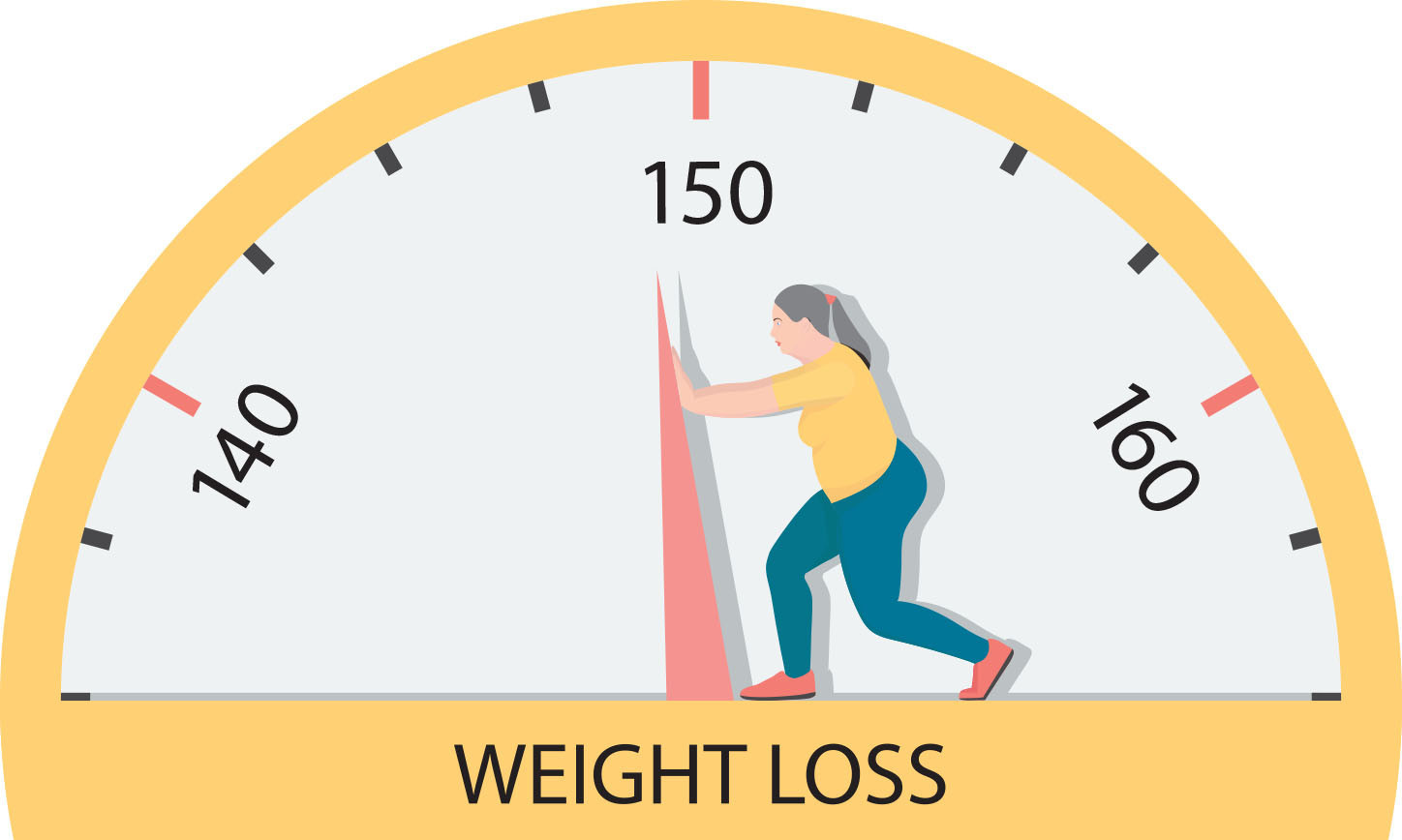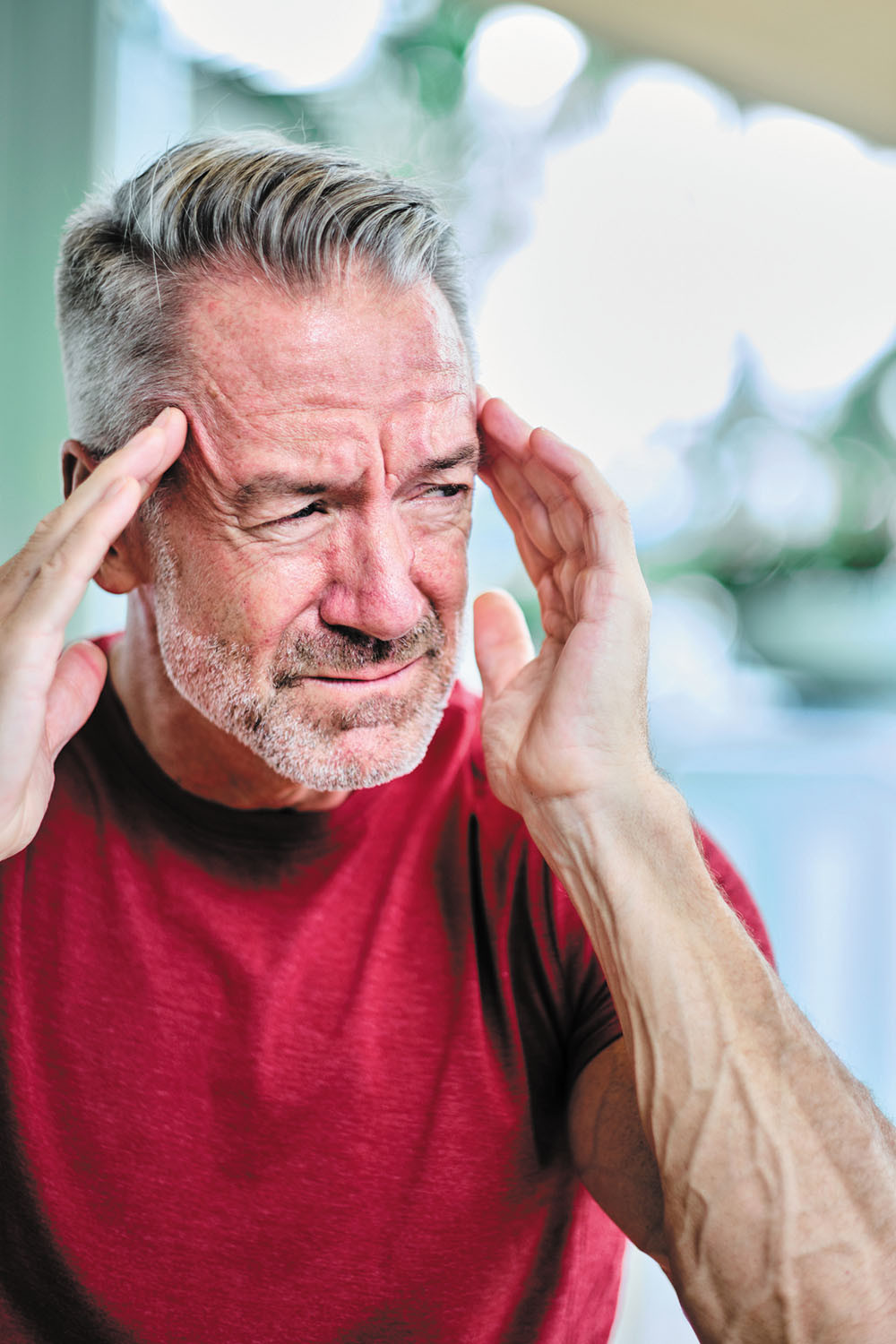
5 timeless habits for better health

What are the symptoms of prostate cancer?

Is your breakfast cereal healthy?

When pain signals an emergency: Symptoms you should never ignore

Does exercise give you energy?

Acupuncture for pain relief: How it works and what to expect

How to avoid jet lag: Tips for staying alert when you travel

Biofeedback therapy: How it works and how it can help relieve pain

Best vitamins and minerals for energy

Should you take probiotics with antibiotics?
Sleep Archive
Articles
Tips to keep lost weight off in the New Year
Work with your body, not against it, for long-term weight maintenance.
For many people, their New Year's resolutions include some sort of weight-loss goal. However, while extra pounds often come off, evidence shows they rarely stay off. Among overweight or obese people who are able to lose 10% of their body weight, just one in six is able to maintain the weight loss for at least a year.
Experts say it's not surprising that weight loss rarely sticks, considering what they now know about how the body works. "Most people believe that obesity is caused by overeating, while we now recognize that the main driver of obesity is one or more disruptions in the body's normal regulation of the amount of fat we maintain," says Dr. Lee Kaplan, an associate professor of medicine at Harvard Medical School and director of the Obesity, Metabolism, and Nutrition Institute at Massachusetts General Hospital.
The beat goes on
Learn when, how, and why you should keep track of your heartbeat.
Soon after you wake up tomorrow morning, before you even sit up in bed, take your pulse. It's fairly easy if you have a clock or timer nearby (see "Measuring your heart rate"). Known as your resting heart rate, this value ranges from 60 to 100 beats per minute in most adults.
"To get a good sense of your resting heart rate, check it every few mornings over the course of several weeks," advises cardiologist Dr. Aaron Baggish, director of the Cardiovascular Performance Program at Harvard-affiliated Massachusetts General Hospital. It's best to measure your resting heart rate when you've been getting your typical amount of sleep and exercise and aren't feeling ill or dehydrated.
Reset your schedule, reset your health
Schedule shifts can hurt your health. The New Year is a great time to hit the reset button.
Throughout most of human history, the pattern of daily life was regular. Dreary for many, but regular. In recent centuries, "modern" life has introduced many irregularities, including changing work schedules. Advances in information technology mean that many of us are always connected — and that we spend time connecting at all hours. And the COVID-19 pandemic has introduced whole new irregularities into daily life.
One thing is certain: "When your schedule changes, you can lose the regular self-care routines that kept you active, eating right, and managing stress — things we need to control weight and inflammation and fight disease," says Dr. Monique Tello, a primary care physician and healthy lifestyle specialist with Harvard-affiliated Massachusetts General Hospital.
What are the long-lasting effects of COVID-19?
Ask the doctor
Q. I read that the death rate from COVID-19 is going down, but that people who recover from the infection still can remain sick for a long time. Is that true?
A. It is true, but we don't yet know how big the problem is: COVID-19 has been with us for only a year, and there hasn't been enough time to know the long-term effects.
Early birds may be more active, but night owls can catch up
Researchers measuring activity levels found that people who tend to go to bed later and sleep later also tend to get less physical activity, compared to early risers. However, these results don't mean that being a night owl is the cause of getting less activity, or that such behavior can't be changed.
How do I improve the quality of my sleep?
Ask the doctor
Q. How many hours of sleep do I need each night, and how do I improve the quality of my sleep?
A. Adults need to average between seven and nine hours of sleep per night. If you're over 65, eight hours might be enough. The occasional short night of sleep won't hurt you.
Obesity is still on the rise among American adults
Research we're watching
American adults are gaining weight, according to data from the CDC. Twelve U.S. states now have obesity rates of 35% or higher, compared with just six states in 2017 and nine states in 2018. Experts say the trend is particularly concerning because adults with obesity are more prone to severe outcomes from COVID-19.
According to the CDC report, racial and ethnic minority groups are disproportionately affected by obesity. Prevalence rates nationwide were
Is there a cure for my nightly snoring?
Ask the doctors
Q. My partner says I've been snoring lately. Are there any home remedies I can use to help me stop?
A. Snoring occurs when muscles in your airway relax during sleep, narrowing the airway and making your breath sounds louder as the air forces its way through. There are a number of strategies that can help. Try sleeping on your side instead of your back, which pushes your tongue to the back of your mouth. Clear nasal congestion resulting from allergies or a stuffy nose. Avoid alcohol (which may act as a sedative) and sleep medications known as benzodiazepines, which may cause your airway tissues to relax, making snoring worse. Losing weight can also help, because surplus tissue, caused by weight gain, can put pressure on and compress the airway, making snoring worse. However, if your snoring does not improve, your partner notices that you have periods during the night where your breathing appears to stop, or you regularly feel drowsy during the day, it may be time to pay a visit to your doctor. You could have a condition called obstructive sleep apnea, which may require treatment.
Tips for beating anxiety to get a better night’s sleep
Many people with anxiety disorders have trouble sleeping. That's a problem. Too little sleep affects mood, contributing to irritability and sometimes depression. Vital functions occur during different stages of sleep that leave you feeling rested and energized or help you learn and forge memories. Sleep usually improves when an anxiety disorder is treated. Practicing good "sleep hygiene" helps, too. Here are some steps to take:
- Go to bed and wake up at the same time every day, even on weekends.
- Daylight helps set sleep patterns, so try to be outdoors while it's light out for 30 minutes a day.
- Exercise regularly (but not too close to bedtime). An afternoon workout is ideal.
- Keep naps short — less than an hour — and forgo napping after 3 p.m.
- Avoid caffeine (found in coffee, many teas, chocolate, and many soft drinks), which can take up to eight hours to wear off. You may need to avoid caffeine entirely if you have panic attacks; many people who experience panic attacks are extra-sensitive to caffeine.
- Review your medications with a doctor to see if you are taking any stimulants, which are a common culprit in keeping people up at night. Sometimes it's possible to switch medicines.
- Avoid alcohol, large meals, foods that induce heartburn, and drinking a lot of fluid for several hours before bedtime.
- If you smoke, quit. Smoking causes many health problems, including compromising sleep in a variety of ways.
- Keep your bedroom cool, dark, and quiet, without distractions like TV or a computer. Avoid using an electronic device to read in bed; the light from the screen can trick your brain into thinking it is daytime. If your mattress is uncomfortable, replace it.
- Reading, listening to music, or relaxing before bed with a hot bath or deep breathing can help you get to sleep.
- If you don't fall asleep within 20 minutes of turning in (or if you wake up and can't fall back to sleep in 20 minutes), get out of bed and do something relaxing until you feel sleepy.
For additional tips and strategies for living with anxiety, buy Coping with Anxiety and Stress Disorders, a Special Health Report from Harvard Medical School.
Recharge your sexual energy
If lack of energy has drained your sex life, there are ways to reignite the passion.
Image: © nautiluz56/Thinkstock
Your sexual drive can stay high late in life, but often your energy for sex can diminish. Low energy not only affects your sex life, but can carry over to other parts of your life, too. You can become apathetic, no longer find pleasure in favorite activities, and become more sedentary.
However, many of these issues related to lost sexual energy can be addressed. "Never think lack of energy means an end to your sex life, and there is nothing you can do about it," says Dr. Sharon Bober, director of the Harvard-affiliated Dana-Farber Sexual Health Program. "There are many strategies you can adopt to get back in the game."

5 timeless habits for better health

What are the symptoms of prostate cancer?

Is your breakfast cereal healthy?

When pain signals an emergency: Symptoms you should never ignore

Does exercise give you energy?

Acupuncture for pain relief: How it works and what to expect

How to avoid jet lag: Tips for staying alert when you travel

Biofeedback therapy: How it works and how it can help relieve pain

Best vitamins and minerals for energy

Should you take probiotics with antibiotics?
Free Healthbeat Signup
Get the latest in health news delivered to your inbox!
Sign Up











